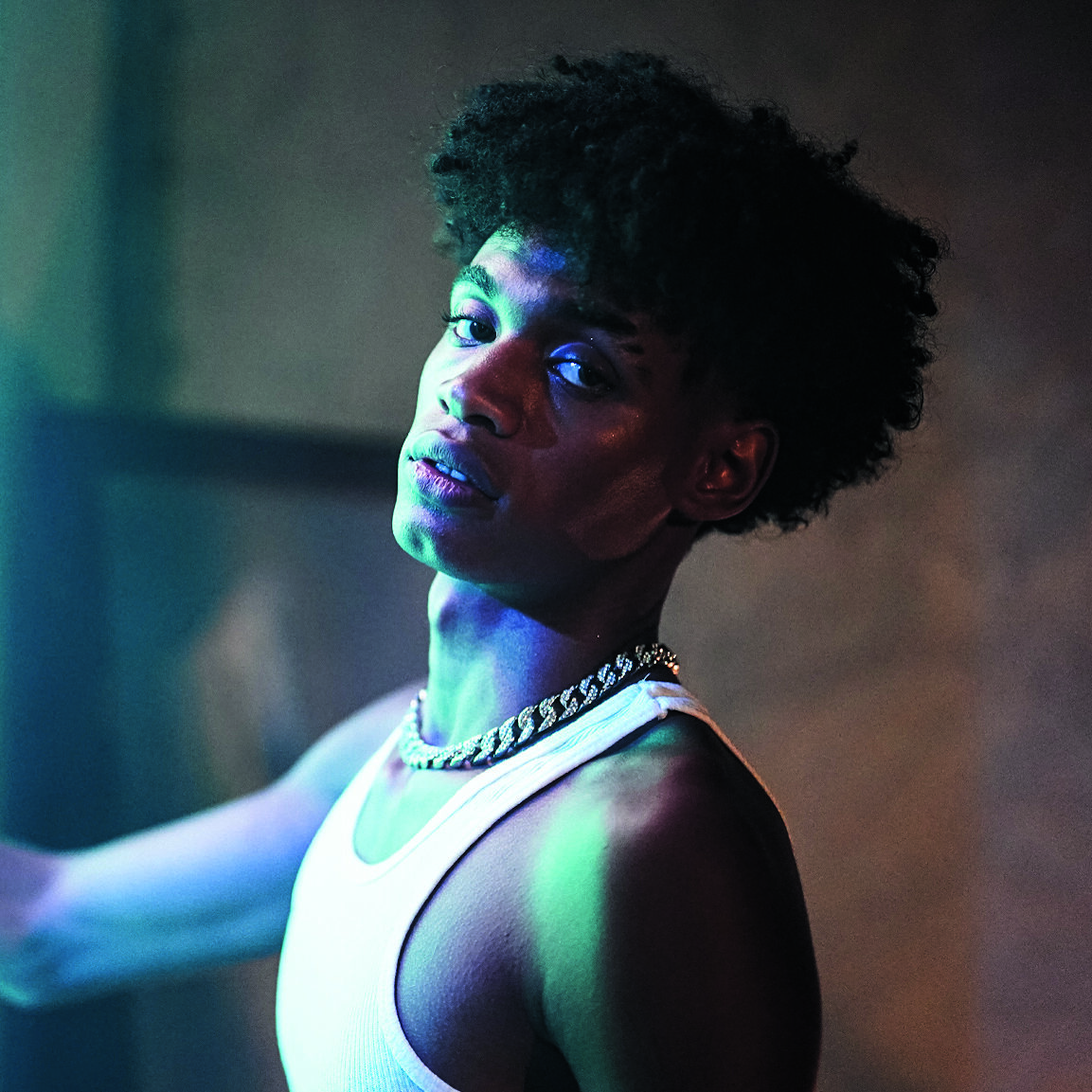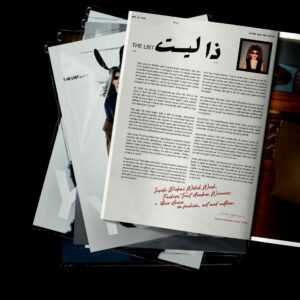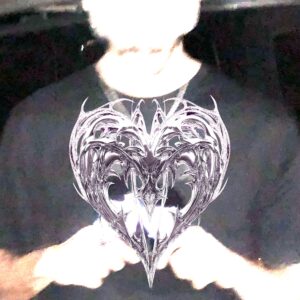In the studio at Maadi Town Mafia Records, Wingii leans into the mic. The atmosphere is charged, but it’s a familiar kind of electricity. It’s the same energy that courses through the streets of Maadi and Imbaba – neighbourhoods that have been both his cradle and crucible. This is the lifeblood of his debut album, ‘Mangesto.’
“Growing up in Imbaba, things were tough there, but I never really batted an eye,” Wingii shares. “I had family, uncles, and enough street cred to have my back. That gave me the necessary confidence to tackle life, no matter how scary or challenging things may be. And that translates into my music and identity.” His confidence is palpable, but it’s not showy – the kind that’s earned, not given. It’s this grounded self-assurance that finds its voice in the diverse sounds of ‘Mangesto.’

Named after his uncle, who Wingii considers a towering figure in his life, the 12-track album pays homage to the people and places that have moulded him into who he is today. “My uncle was always there for me and the family,” he says. “As a kid, there are certain family members you view as superheroes,” he reflects. It’s a sentiment that resonates deeply in tracks like “Arga3 el Beet,” a track that Wingii says embodies a continuous conversation he had with his mother throughout the album’s creation.
The track features Mahmoud Siam from popular Egyptian rock band Massar Egbari. It’s a genre-bending tune that melds rap with alternative rock. “‘Arga3 el Beet’ is very close to my heart,” Wingii reveals. “It always hits home with me. I’m grateful for my mum and only wish to do anything to make her proud and content,” he says.
Beyond a wholesome familial tribute, ‘Mangesto’ is also something of a sonic playground, one where he plays with an irreverent mix of styles from drill-type beats to Jersey club rhythm, even stepping into orchestral and alternative rock. “At M-town Mafia, we see sub-genres as mediums of expression, so, I wanted to express myself by fully exploring my vocal range and sound.” It’s like Wingii is inviting us into the many rooms of a house that he’s still building, each track a different chamber of his psyche.

But what sets ‘Mangesto’ apart is its narrative structure. “It took a while to strike a balance between the musical flow and the storyline we were trying to project,” he says. Each track serves as a chapter in a larger story, culminating in a story of homecoming with “only one outcome in sight, which is success, inshallah.”
The album opens with ‘Mangestro (Intro)’, featuring smooth bars over a piano instrumental that sets the tone for what is to come. It’s a departure from the drill and trap that Wingii is known for, signalling to the listener that ‘Mangesto’ is not just another rap album, it’s an exploration of different soundscapes. As you listen more, the album’s sonic diversity unravels with every track. “I took the album as a chance to experiment with myself,” Wingii elaborates, and this is evident from the jump.
Adding another layer of complexity to ‘Mangesto’ is the collaborative spirit that permeates the album. Produced by 17 different Maadi Town Mafia producers, the album is a collective endeavour that showcases the depth of talent and skill within the crew. “We have a lot of talented producers on the roster, each with a different and distinct sound,” Wingii notes.
The album also features an array of artists, from Mahmoud Siam of Massar Egbari to Sudanese artist Hleem Taj Alser, and MTM’s own Husayn, FL EX, and Lorenzoo, adding a multi-dimensional aspect to the album.
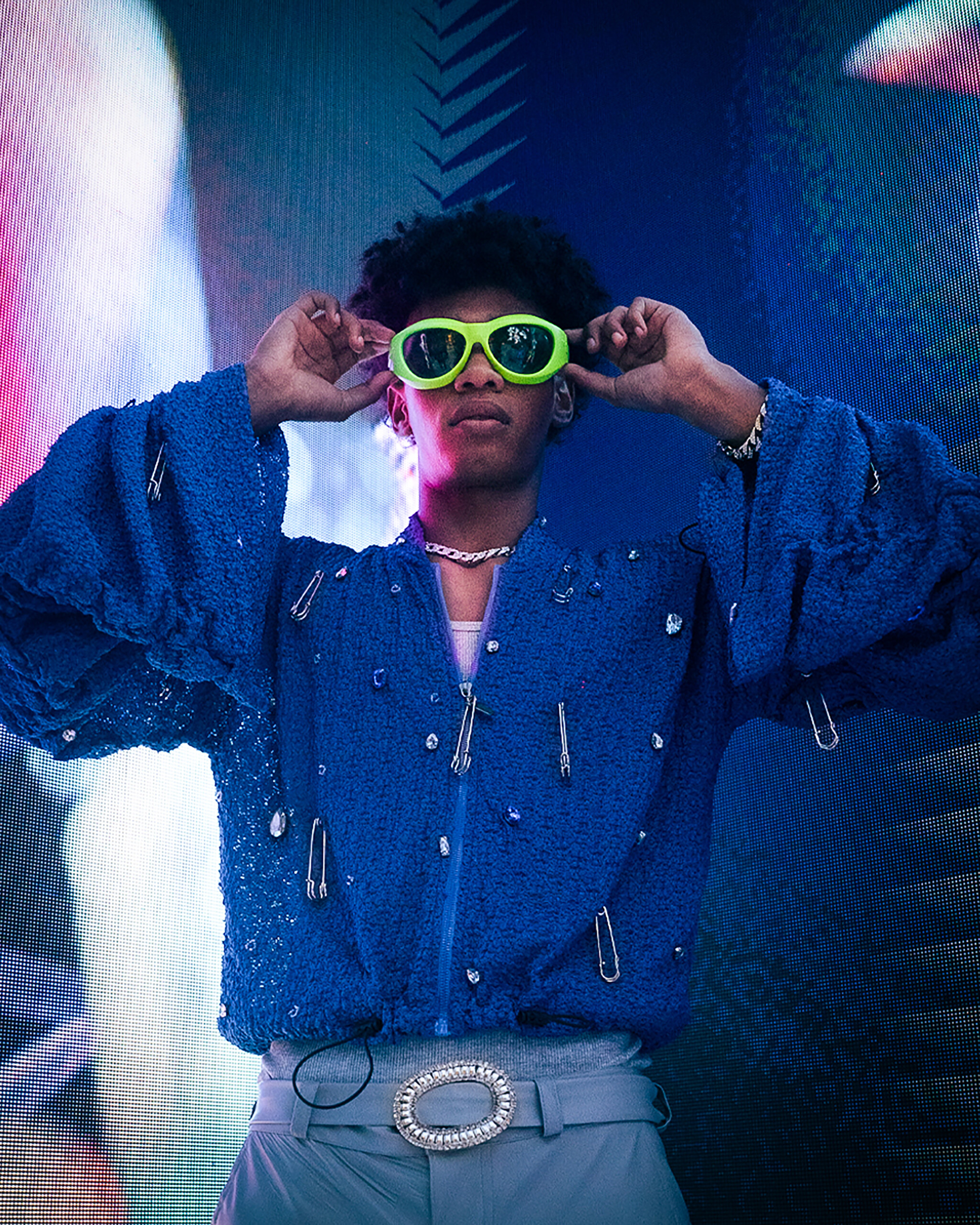
What ties everything together is Wingii’s personal lyricism. Whether he’s talking about his family, his struggles, or his aspirations, his voice is the thread that weaves through the diverse soundscapes of ‘Mangesto.’ “The album is a window into who I am and who we are,” he says.
It’s a future that’s not just his own. As a key player in Maadi Town Mafia, a collective known for its raw energy and unfiltered lyrics that been instrumental in shaping the sound of Egypt’s burgeoning hip-hop scene, Wingii is part of a larger narrative. “I’m grateful for being with M-town Mafia. We’re family. We saw success together,” capturing the essence of the group’s ethos.
It’s a narrative that’s not just shaping the future of Egyptian rap but also challenging the very notion of what rap can be in the MENA region. When Wingii speaks of his collaboration with Sony Music Entertainment Middle East, it’s obvious that it is more than just a record deal. “Hopping on with Sony Music was a huge step and milestone for all of us,” he notes. This partnership signifies a broader shift in the MENA musical landscape, marking a moment where local artists are no longer confined to the peripheries but are taking centre stage.
Their tracks like ‘Khamsa,’ ‘Zee3,’ and ‘Dawletna’ have not only dominated charts but resonated on a visceral level with a generation hungry for something real.
As his music gains traction on streaming platforms like Spotify and YouTube, Wingii reflects on his journey and the broader impact he hopes to have. “It feels surreal surpassing many of my favourite artists on streaming platforms,” he admits. But for Wingii, success is not just measured in streams and likes. To him, it’s measured in impact. “I hope I’m shaping hip-hop in the MENA region and providing for the culture that made me what I am today,” he says.
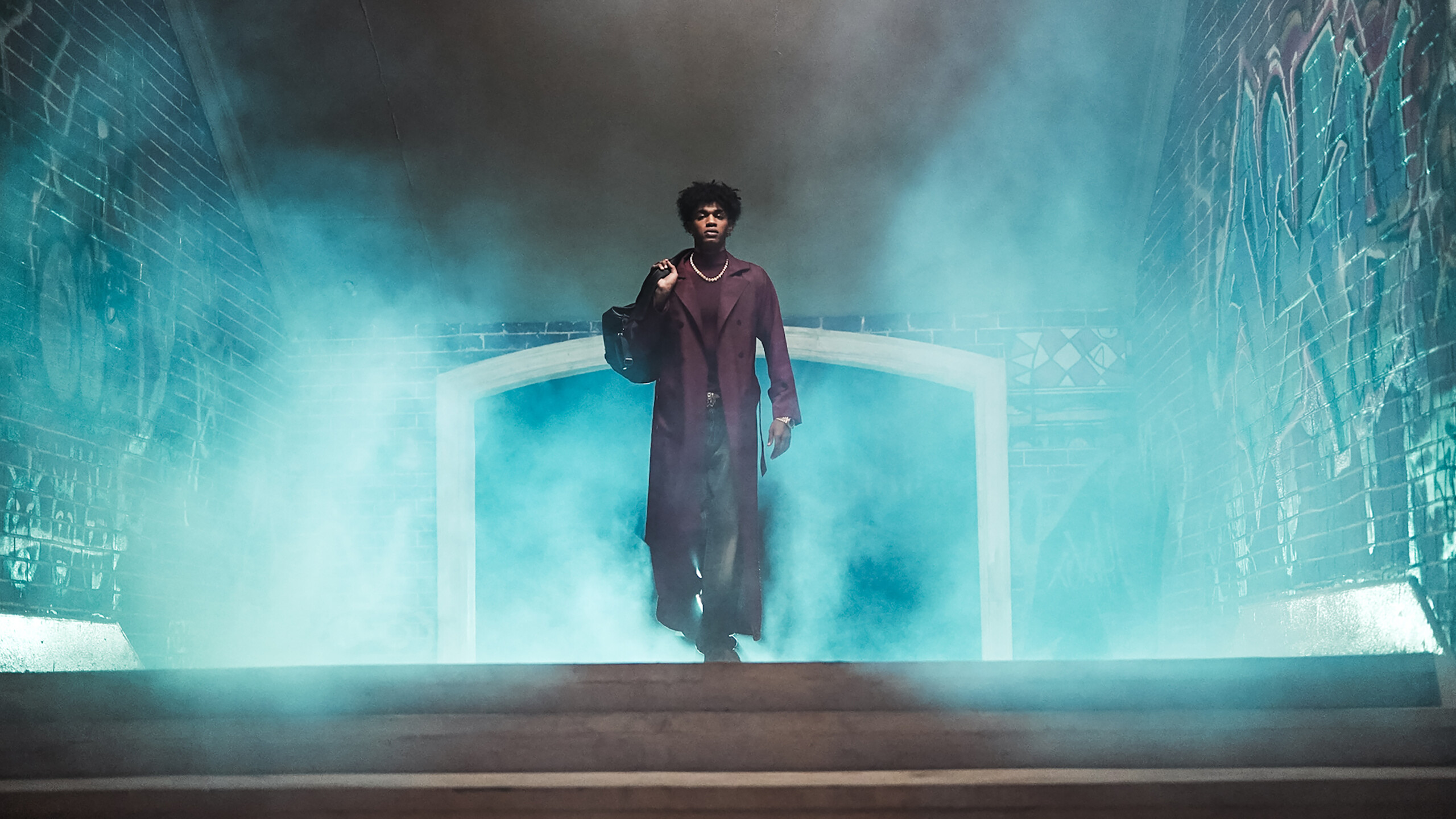
Wingii’s rise cannot be understood in isolation; it’s part of a larger cultural movement that is redefining the contours of MENA hip-hop. In a region where music has often been a tool for social commentary, artists like Wingii are pushing the boundaries, challenging the status quo.
It’s not an album, it’s a statement, a journey, but perhaps most importantly, it’s a beginning, a real introduction. It’s a chapter in Wingii’s unfolding story.
As ‘Mangesto’ continues to make a splash, Wingii is already looking to the future, acutely aware of the endless possibilities that stretch out before him. “This experience taught me a lot, and I think I have just started,” he says. “There’s nothing to expect from my music, as I see endless possibilities.”
In a world that often seeks to put artists into neat categories, Wingii defies easy classification. He’s a rapper, yes, but he’s also a storyteller, a cultural commentator, and a young man navigating life in modern Egypt.
Want to dig a little deeper into the MENA hip-hop world? Check out our dedicated regional music coverage here.
